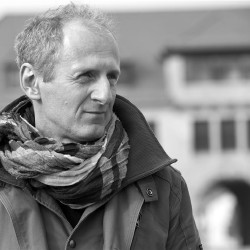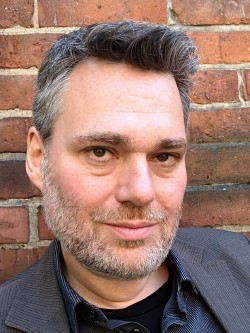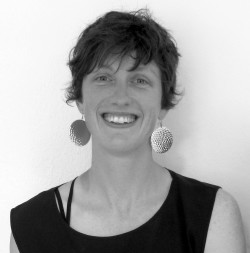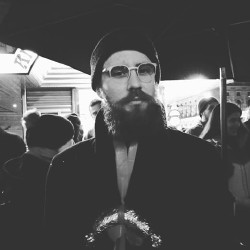PRESENTERS AT FINAL CONFERENCE- Nuremberg
Panel 1 Fracture Zones of Cultural Heritage (Sites)
Dr. Jörg Skriebeleit (head of the Flossenbürg Concentration Camp Memorial): Forget Memory!

The question of what is appropriate regarding places of mass murder or historic violence poses itself repeatedly; and over the past couple of years, it has become almost hypertrophic. Are “places” even relevant any more in an increasingly digitalized world? If yes—how do we deal with them? Socio-politically, we have long moved into a post-memorial age. Somewhat paradoxically, this seemingly leads to the founding and establishment of ever more memorial sites.
Jörg Skriebeleit studied empirical cultural studies and European ethnology at the University of Tübingen and at the Humboldt-University Berlin. He gained his PhD at the Center for Anti-Semitism Studies of the TU Berlin with a dissertation on Flossenbürg as a memorial site. He has been working at the Flossenbürg Concentration Camp Memorial since 1996 and, since 1999, has functioned as its head. He published on the memorial’s history and initiated a radical reconceptualization thereof. Working toward lived commemorative culture as well as a tolerant, open society, he is also an engaged member of the action group “Weiden Is Colorful,” among others. In 2013, Skriebeleit received the Cross of Merit of the Federal Republic of Germany for his commitment and efforts. In 2014, the Flossenbürg Concentration Camp Memorial was nominated for the European Museum Award. In 2016, he received the Bavarian Constitutional Silver Medal.
Thomas Kaestle (cultural studies scholar, Hannover): The Frame as Art: Structures for Cultural Openness

Cultural progress and the conditions set by municipal administration are often difficult to unite. Culture requires intellectual and urban-spatial gaps, but it should not be handed over to arbitrariness. How can we support projects, which transcend the status quo—that is, which delve into the unheard, unthinkable, and unfitting—beyond the compulsion to direct understandability and presentability?
As cultural studies scholar, Thomas Kaestle has been a foundational member of the Expert Advisory Council for Art in Urban Spaces of the Provincial Capital Hannover since 2017. As art mediator, he oversees the program “Circumventing Art” for the city’s department of culture. He is an editor, interdisciplinary reader, and author of scholarly, essayistic, as well as journalistic texts on culture, urbanity, and cultural politics.
Panel 2 From Experiment to Permanentization
Hannah Kordes (architect, Linz): Right to Rurality in Urban Spaces — What the Leisenhof-Area Can Teach Us

The Linz Leisenhof Ensemble has been undergoing a process of transformation over the past six years. Strategies, developed in a processual manner, are being discussed in order to direct the proprietor’s (i.e. the diocese’s) logic of utilization as well as to secure the holistic potentials of the neighboring gardening initiatives as green spaces of education and encounter.
Hannah Kordes is a trained architect. She is campaigning for the utilization of spatial resources for the common good and the participation of diverse groups of people in processes of planning. In the context of her doctoral dissertation, with the Leisenhof area functioning as her case study, she is seeking to develop strategies of securing rural qualities within urban spaces.
Gunnar Grandel (urbanist, Vienna): What Remains at the Place of Importance?

In 2017, refugees and students of the TU Vienna activated the Design-Build-Campus OPENmarx in the south of Vienna under the title “Place of Importance.” An “urbanist-ethnographic experiment” analyzes this interdisciplinary artistic process of activation and carves out factors of permanentization.
Gunnar Grandel analyzes the possibilities of sociocultural initiative in urban spaces from multiple perspectives. Having finished his studies in urban studies at the Bauhaus University Weimar, he is currently working in this field as a research fellow at the GABU Heindl Architecture. He is also undergoing a course of studies in urban development and spatial planning at the TU Vienna. His engagement with the collective “Raumstation” (Weimar/Berlin/Vienna), characterized by interventions, installations, and processes of activation, supplements Grandel’s work with an artistic-activist and entirely practical perspective.